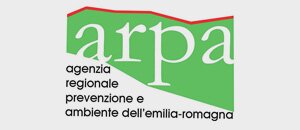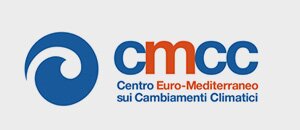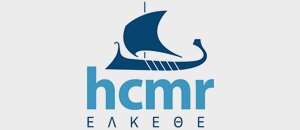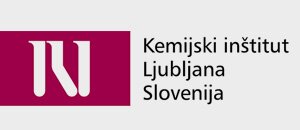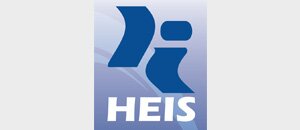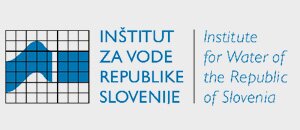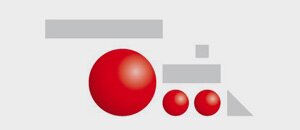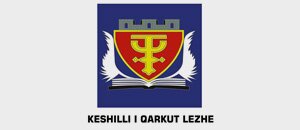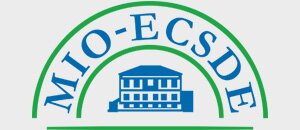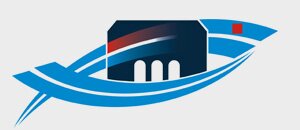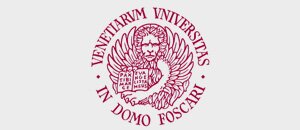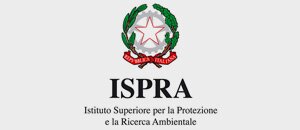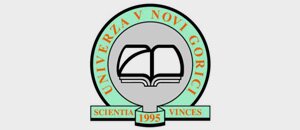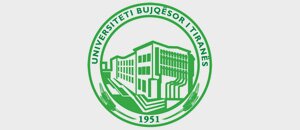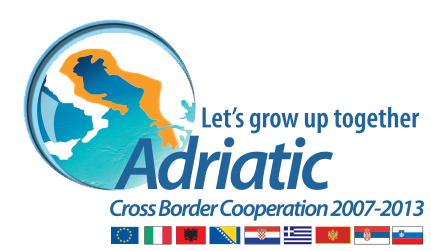Addressing knowledge gaps and research needs to facilitate effective decision making against marine litter and its impacts in the Adriatic and Ionian Seas
Marine litter threatens species and habitats, with impacts varying from entanglement and ingestion, to bio-accumulation and bio-magnification of toxics released from litter items, facilitation of introduction of invasive species, damages to benthic habitats, etc. Marine litter has a negative impact on vital economic sectors such as fisheries, aquaculture, navigation, energy and tourism, while it may endanger human health and safety.
Sound, shared scientific knowledge and coordinated and multi-sectoral action are key to combating marine litter. Marine litter related information in the Mediterranean, including the Adriatic Sea, remains limited, inconsistent and fragmented. Effective measures to tackle marine litter in the region are seriously hampered by the lack of reliable scientific data.
Main lines of action
The DeFishGear project directly addresses the need for accurate, coherent and comparable scientific data on marine litter in the Adriatic region by taking up action along the following lines:
- Defining a joint monitoring and assessment approach for marine litter (monitoring protocols), through a participatory process;
- Carrying out surveys on beaches, the water surface, the seafloor and biota to enhance knowledge on amounts, composition and potential impacts of marine litter;
- Establishing a Network of Experts on marine litter;
- Building capacities to monitor marine litter in a harmonized way through reinforced exchange of experiences, techniques and know-how;
- Analyzing the socio-economic implications of marine litter on people, their property and livelihoods;
- Setting up a database to make marine litter data accessible to all stakeholders;
- Developing recommendations and policy options based on the project findings and accumulated knowledge to meet regional and national objectives regarding marine litter (MSFD, RPMLMM, EcAp, etc.).
Outputs
The Marine Litter Monitoring Methodologies
- Methodology for monitoring marine litter on beaches (macro debris >2.5 cm)
- Methodology for monitoring marine litter on the sea surface
- Methodology for monitoring marine litter on the seafloor – bottom trawl surveys
- Methodology for monitoring marine litter on the seafloor – scuba/snorkelling
- Methodology for monitoring macro-litter in biota
- Methodology for sampling plastic pellets for POPs determination
The one-year long pilot marine litter surveys
The one-year long pilot marine litter surveys aiming to assess the amounts, sources and impacts of marine macro-litter in the Adriatic and Ionian Seas. This is the first effort to-date aiming to assess in a coordinated, consistent, comprehensive and harmonized way the amounts, composition and to the extent possible, the sources of marine litter in all marine matrices (beaches, sea surface, seafloor, biota) of seven countries sharing the Adriatic and Ionian Seas. More specifically: (i) 180 beach transects were surveyed in 31 locations, covering 32,200 m2 and extending over 18 km of coastline; (ii) 66 floating litter transects were conducted with small-scale vessels covering a distance of 415 km, while a total of 9,062 km were surveyed by observers on ferries; (iii) for the seafloor litter 11 locations were investigated with bottom trawl surveys and 121 hauls were performed, while 38 transects were performed in 10 locations with underwater visual surveys with scuba/snorkelling, thus covering a total area of 5.83 km2 of seafloor; (iv) for litter in biota 81 hauls were conducted and 614 fish individuals were studied.
The Marine Litter Assessment in the Adriatic and Ionian Seas
The first of its kind marine litter assessment - at European and European Regional Seas level - which is based on comparable field data obtained for all marine compartments within the same timeframe, through the application of harmonized monitoring protocols, developed within the framework of the project, thus providing also strategic input with regards to coordinating, harmonizing and even standardizing marine litter monitoring. Find the full-text report here
The Marine Litter Socioeconomic Implications Study
The DeFishGear project carried out a survey-based assessment of the socio-economic implications of marine litter in the Adriatic and Ionian macroregion. This is the first-ever effort aiming to investigate in a coordinated, consistent and comprehensive way the socio-economic implications of marine litter in the Adriatic-Ionian macroregion. In fact it is the first of its kind marine litter related study in the Mediterranean. Find the full-text report here
The DeFishGear Network for a litter-free Adriatic and Ionian coast and sea
Motivated by the successful cooperation accomplished within the project – the first sub-regional project dealing with the marine litter issue in the Adriatic-Ionian macroregion, establishing and piloting comprehensive, coordinated and harmonized marine litter monitoring throughout the region as well as marine litter related measures – the DeFishGear partners decided to further commit themselves to the fulfillment of a shared vision and form a Network for a Litter Free Adriatic and Ionian Coast and Sea. This network ensures that the contacts and working relationships developed during the project will be maintained and further developed through follow up, collective and collaborative projects and initiatives. Furthermore, it is expected to substantially contribute to efficiently and effectively achieving lasting positive impacts and changes via continuity, coherence and cross-fertilization among and between projects and/or initiatives dealing consecutively or in parallel on the marine litter issue in the region. Read more here
The DeFishGear GIS database
A purpose-built database developed within the scope of the project and publicly accessible at http://defishgear.izvrs.si/defishgearpublic. The DeFishGear database uses the “ArcGIS Server” software for spatial manipulation and the “Nukleus GIS” software for viewing environmental information and it is hosted by the Institute of Water of Slovenia.
The DeFishGear video tutorial on beach litter monitoring
Proper monitoring of our coasts and seas is an important contribution to keeping them litter-free. Therefore, MIO-ECSDE produced a video tutorial on how to monitor marine litter on beaches.
The DeFishGear e-learning module on marine litter monitoring
A self-paced distance learning module on how to monitor marine litter on beaches, the sea surface and the seafloor was designed to be comprehensive enough yet not time demanding so that any interested busy practitioner, administrator, professional, student or NGO staff member can enhance her/his skills on how to design and implement marine litter monitoring activities. It provides the necessary technical and scientific background to support the design and implementation of marine litter monitoring programmes within the framework of the EU Marine Strategy Framework Directive and the UNEP/MAP Regional Plan for Marine litter Management in the Mediterranean. The methodologies showcased have been pilot tested by the DeFishGear project and have been developed based on the ‘Guidance Document on Monitoring of Marine Litter in European Seas’ elaborated by the EU MSFD Technical Sub-Group on Marine Litter and the UNEP/MAP MEDPOL draft Monitoring Guidance Document on Ecological Objective 10: Marine Litter.
For more information about WP4 activities, please contact Dr. Thomais Vlachogianni, Programme Officer, Mediterranean Information Office for Environment, Culture and Sustainable Development (MIO-ECSDE) via e-mail: This email address is being protected from spambots. You need JavaScript enabled to view it.
Addressing the emerging threat of microplastics
Microplastics pollution (plastic particles with a diameter smaller than 5mm) is an emerging threat, widespread and ubiquitous throughout the marine environment. Understanding the sources (primary and secondary), quantities, distribution or possible solutions is very limited in the Adriatic region, as well as in the world.
Main lines of action
The DeFishGear project takes up the challenge to address the emerging threat of microplastics in the Adriatic region by:
- Developing a harmonized methodology for monitoring and assessment of microplastics;
- Providing all collaborating partners with the necessary equipment and skills for monitoring;
- Carrying out research activities to improve the understanding of the quantities, types and sources of microplastics in the Adriatic Sea, as well as the their presence in marine biota;
- Undertaking studies to enhance knowledge on persistent organic pollutants adsorbed on microplastics.
Outputs
- The protocol for Microplastics Sampling on the Sea Surface and Sample Analysisrotocol for Microplastics Sampling on the Sea Surface and Sample Analysis;
- The pilot assessment on microplastic in rivers;
- The pilot assessment on microplastic in sea surface and beach sediment in potential accumulation zones;
- The pilot assessment on microplastic in guts of commercially available fish species and mussels;
- The pilot assessment on microplastic in fishing areas.
For more information about WP5 activities, please contact Mrs. Manca Kovač Viršek from the Institute for Water of the Republic of Slovenia via e-mail: This email address is being protected from spambots. You need JavaScript enabled to view it.
Piloting measures to address derelict fishing gear and other marine litter items
Abandoned, lost or otherwise discarded fishing gear (ALDFG) is a significant and very persistent form of marine litter, recognized as one of the major pollution problems damaging the environmental, economic and cultural values of the marine and coastal environment worldwide. Derelict fishing gear (DFG) is a major component of the marine litter problem worldwide and has been identified as one of the most biologically threatening types of marine litter. DFG includes nets, lines, crab and shrimp traps/pots, and other recreational or commercial harvest equipment that has been lost, abandoned or discarded in the marine environment. ALDFG has a number of harmful effects and impacts for the marine and coastal environment and human livelihoods and well being. They pose threats to marine habitats and wildlife (e.g. entanglement and ‘ghost’ fishing, digestion, etc.), human safety (e.g. divers, boat crews, etc.) and property damage (e.g. damaging propellers).
Main lines of action
The DeFishGear project implemented concrete prevention and mitigation actions to tackle derelict fishing gear and other marine litter items in the 7 countries of the Adriatic Sea. These are:
- Fishing for litter initiatives undertaken by fishermen while performing their daily fishing activities, not only leading to removal of marine litter but also raising awareness on the issue within the fishing sector and the wider public.
- Targeted recovery of ‘ghost nets’ from the sea with the direct involvement of fishermen and divers. Ghost nets are accidently lost fishing nets that continue to catch marine organisms as they keep on drifting in the sea, often for very long periods.
- Establishing derelict fishing gear management schemes to collect and recycle lost or abandoned fishing nets and other gear.
Outputs
- Some 75 agreements with fishermen and fishermen associations have been signed in the Adriatic-Ionian macroregion;
- Development and distribution of some 250 questionnaires targeted to fishermen in order to characterize the phenomenon of "ghost nets" in terms of type, quantities and location of the gear abandoned or lost at sea;
- Procurement of adequate disposal containers for the on-site collection of derelict fishing gear and marine litter (disposal containers on the boats and in the ports);
- Some 114 tons of marine litter and derelict fishing gear collected at ports and harbours;
- Some 27 tons derelict fishing gear collected and sent to Aquafil and/or prepared for recycling;
- Some 117,5 tons of marine litter brough ashore by fishing for litter activities.
Within WP6 the following documents where prepared:
- Derelict fishing gear and fishing for litter project guidelines;
- Report on the Fishing for Litter pilot action;
- Guidelines on for Marine Litter and Derelict Fishing Gear Management in the frame of ICZM.
For more information about WP6 activities, please contact Mr. Paolo Pelusi from the Consorzio Mediterraneo via e-mail: This email address is being protected from spambots. You need JavaScript enabled to view it.


